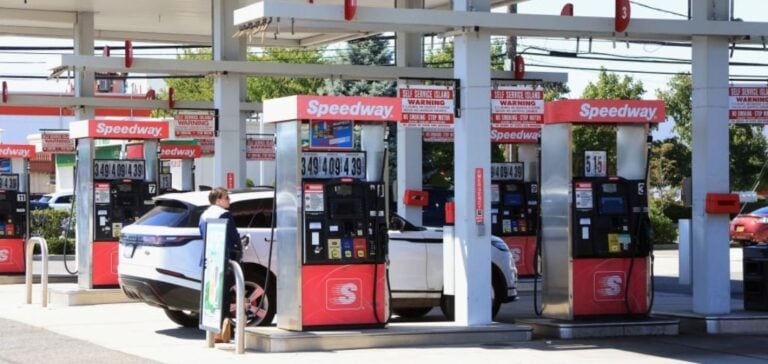Gasoline prices in the United States are on the verge of falling below $3/gallon, marking an important psychological threshold for consumers.
This anticipated drop comes after a period of price volatility due to complex macroeconomic factors, including weaker demand and adjustments in crude oil production.
According to the American Automobile Association (AAA), the national average price of gasoline is currently $3.25/gallon, down 19 cents on last month and 58 cents on the same period last year.
There are several reasons for the drop in pump prices, including the end of the summer season and the transition to less expensive winter fuels.
According to Patrick De Haan, chief analyst at GasBuddy.com, prices should fall below $3/gallon by the end of October, before the peak of election activity in November.
This price dynamic could have a direct impact on voter behavior in strategic states such as North Carolina.
A political dimension to price fluctuations
Gasoline prices have historically played a crucial role in the perception of economic policies by American voters.
A substantial drop in prices could be seen as a positive sign of economic management by the party in power.
Studies conducted by the Wells Fargo Investment Institute show a correlation between presidential approval ratings and prices at the pump.
With gas prices below $3/gallon, Democrats under Kamala Harris could strengthen their position in swing states in the November elections.
Gas prices in states like North Carolina, one of the battlegrounds of the election, are already below $3/gallon.
This key economic indicator could influence public opinion, potentially favoring the incumbent party at a crucial moment in the campaign.
Factors influencing price declines
Gasoline price fluctuations are largely determined by global supply and demand fundamentals.
In 2023, prices fell due to weaker-than-expected demand in the USA and China.
In April, Brent crude, the global benchmark, was trading at over $90 a barrel, but has since fallen to below $70, reflecting subdued demand forecasts and stable supply.
This drop in crude prices was facilitated by relatively robust oil production, even in times of weak demand.
Nevertheless, unforeseen events such as Hurricane Francine, which is currently passing through US offshore oil production areas, pose risks of production disruptions.
Fears of prolonged shutdowns of production facilities have led to a temporary increase in oil prices of over $2 a barrel.
Economic and sectoral impact
Last year, gasoline prices reached unprecedented highs, exceeding $5/gallon, mainly due to supply disruptions caused by Russia’s invasion of Ukraine.
In response to these supply shocks, U.S. refineries operated at high capacity levels to stabilize markets, contributing to the current price decline.
According to the U.S. Energy Information Administration (EIA), U.S. fuel demand is expected to average 8.92 million barrels per day in 2023, down slightly on the previous year.
Moreover, diesel prices are following a similar trajectory, falling to $3.56/gallon, the lowest level since October 2021.
This decline, due to increased supply and moderate demand, could have positive effects on logistics costs, influencing consumer goods prices and transportation costs in several industries.
Future prospects for the energy sector
Gasoline and diesel prices will continue to be influenced by a complex mix of economic, geopolitical and climatic factors.
While prices at the pump are falling, energy market players remain vigilant to potential fluctuations linked to unforeseen global events or production adjustments.
The current drop in prices may offer consumers some respite, but it also raises questions about the stability of energy markets in the medium term.





















